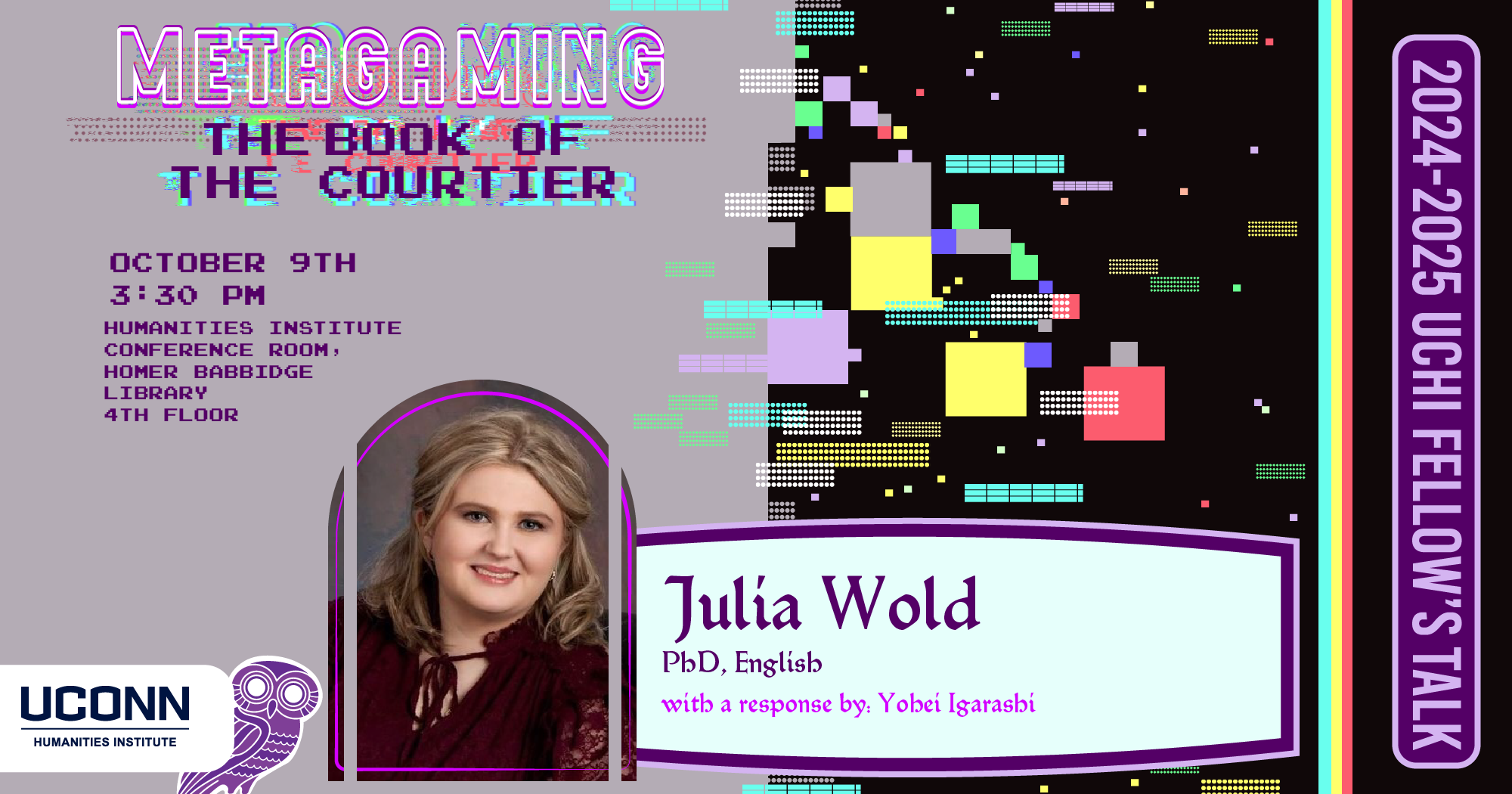
Metagaming The Book of the Courtier
Julia Wold (Ph.D. Candidate, English, UConn)
with a response by Yohei Igarashi (English, UConn)
Wednesday October 9, 2024, 3:30pm, Humanities Institute Conference Room (HBL 4-209)
The event will also be livestreamed with automated captioning.
Register to attend virtually
This talk will focus on the “ludic” or gamified nature of the 16th century Italian courtly manual, The Book of the Courtier. As this text has long been read in a games studies context, this talk will both present the scholarly consensus on the ludic nature of the text and identify structural similarities (homologies) between the text and video games. In taking this next step, we can better understand not only the gamified structure of such early modern texts, but how and why those features appear and function in video game adaptations and appropriations of those texts.
Julia Wold is a PhD Candidate in the English department and Dissertation Fellow at the UCHI. Her research centers on Shakespeare/early modern drama and adaptation theory, with a focus on new media, specifically video games. Her work has recently been published in Adaptation, and she is the author of a forthcoming essay on Shakespeare as genre marker in Star Wars in a collection on Shakespeare and Science Fiction from Arden Bloomsbury. She is also the co-host and editor of the podcast Star Wars English Class, an ongoing public humanities project that recently started its fourth season.
Yohei Igarashi is Associate Professor of English at the University of Connecticut. His writing to date focuses on how literature has historically related to communication, information, and technology. He is the author of The Connected Condition: British Romanticism and the Dream of Communication (Stanford University Press, 2020), a prize-winning essay in Studies in Romanticism, and other writing. In the field of computational literary studies, his work includes collaborative papers on topics ranging from poetic form to plain writing, as well as a magazine piece in Aeon on computer-generated text. He is currently writing an account of the role of computing in the history of literary studies. From 2019–2023, he was Assistant then Associate Director at the UConn Humanities Institute, where he oversaw the Digital Humanities and Media Studies Initiative. In 2023–2024, he was the Carl and Lily Pforzheimer Foundation Fellow at the National Humanities Center.
Access note
If you require accommodation to attend this event, please contact us at uchi@uconn.edu or by phone (860) 486-9057. We can request ASL interpretation, computer-assisted real time transcription, and other accommodations offered by the Center for Students with Disabilities.

